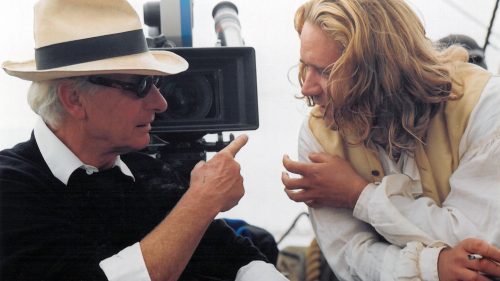
Focusing on Peter Weir’s early directorial works, one can easily spot the interesting and personal elements that would later be present in his most famous Hollywood films. His unconventional debut feature, The Cars That Ate Paris (1974), presents a seemingly self-contained microcosm, a small, idyllic Australian town that hides something disturbing. A fleeting detail destabilizes the viewer and hints at madness: in the doctor’s locker, an electric drill is marked with a red cross.
Unsuspecting travellers, victims of car accidents engineered by the town’s residents, find themselves, if they survive, in an absurd place where young rebels drive cars built from the wreckage of those crashes, an almost prophetic nod to the Mad Max saga, which George Miller, another great Australian director, began in 1979.
In The Last Wave (1977), an ancestral threat echoing Aboriginal culture forewarns of an imminent catastrophe, similar to a global flood. The theme of wild, violent, and ruthless nature reappears in The Mosquito Coast (1986), where the protagonist leads his family into literal and metaphorical drift. This theme is already present in the radiant yet terrifying landscape of Picnic at Hanging Rock (1975).
Jumping ahead in Weir’s filmography, we find The Truman Show (1998), where the protagonist confronts the unknown. To prevent him from uncovering the incredible lie that surrounds him, a violent, artificial storm is unleashed against him.

In April 1805, off the coast of Brazil, His Majesty’s ship Surprise is attacked and severely damaged by the American frigate Norfolk. When faced with the decision of whether to return to port for repairs and to tend to the wounded or to pursue the enemy, Captain Jack Aub...
A delirious journey into the Australian outback, where everything is unpredictable.
The disappearance of three girls and their teacher on a sunny day triggers deep-seated anxieties.
As nightmares and unending floods plague Sydney, the city faces an imminent cataclysm.
A race against time through the trenches of a brutal war that shatters youthful illusions.
With Orwellian references and a connection to Philip K. Dick’s 1959 novel Time Out of Joint, though not explicitly referenced.